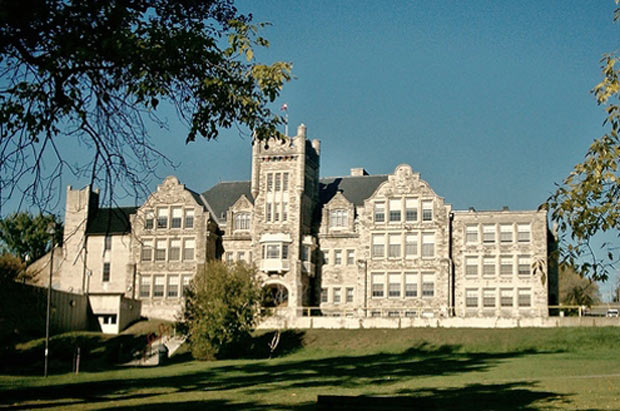
COPENHAGEN – The choices that teens make in terms of their education are directly related to the choices that their parents made. That result was driven home by a study at the University of Copenhagen in Denmark. The process of funding education in Norway, Sweden, Finland and Denmark is often pointed to as a model for North America.
This is due to an absence of class as a politically valid concept reflected in admission procedures targeting working-class or first-generation students in the higher education system.
An underlying assumption is that such programs are irrelevant in a social democratic welfare state model, where there are no tuition fees and where all students receive relatively generous government grants (i740 per month for the duration of the program in 2011, with the possibility of 1 additional grant year).
However, even though Danish students have equal access to education, their choice of studies are often still influenced by social class.
Young people from working class backgrounds are motivated by studies with a clear job profile and high income, while prestige and studies with a strong identity appeal to young people of parents with university degrees when choosing which studies to pursue.
Students who have chosen to study medicine, architecture, economy and sociology often come from homes where the parents have completed higher education, whereas business studies and pharmacy often appeals to young people with a working class background. This is documented by a research team from the University of Copenhagen and Aalborg University in a new study.
The study “The Educational Strategies of Danish University Students from Professional and Working-Class Backgrounds” is based on 60 interviews with Danish students from six different university level study programmes: Medicine, architecture, sociology, economy, pharmacy and business studies.
Young people of parents with university degrees choose a 24-hour culture
The young people bring with them the resources they get from their families. If you grow up in a home with parents who are doctors or architects with a strong professional identity, it is an obvious choice to follow the same path as your parents when you grow up.
“For young people whose parents are university educated, factors such as prestige and a strong sense of professional identity are important. They are attracted by an educational culture in which you are a student 24/7, and where leisure activities are tied to the identity that lies within your studies. These young people have also grown up with topical discussions around the dinner table which also prepares them for their lives as students,” says Jens Peter Thomsen.
Young people from working class backgrounds choose ‘9 to 5’ studies
When young people from working class homes with good grades in their A-level exams choose other paths than the prestigious studies, it is, among other things, due to the fact that they want a clearly defined aim of their studies.
“The young people who are first-generation university students often choose studies that are more ‘9 to 5’ and less tied up to a sense of identity. They have lower academic expectations of themselves, and they choose studies with a clearly defined goal for their professional lives,” in sectors where jobs are easily found.
They do not choose to study, e.g. sociology because it can be difficult to know what it might lead to jobwise, says the education sociologist.
Financial freedom does not erase the influence of the social background
The study shows that young people with a working class background do not experience their financial situation as an obstacle when choosing to pursue higher education. Welfare benefits in Denmark mean you do not have to pay tuition, and you also have the system with the Danish state educational grant (SU). This helps erase the class differences, but they still exist, emphasised Jens Peter Thomsen.
“In the US and in many other European countries you will find the same patterns in young people’s choice of studies as in Denmark. Although the Danish welfare system creates more equality,” the inequality still exists, he states, and he adds:
“The fact that social background plays such an important role, challenges our view that everyone has equal opportunities. We will end up witha very narrow view of society if positions of power and prestige are solely reserved for children of parents with a university degree,” says Jens Peter Thomsen.
As an example he mentions that medical students from families of doctors may have a different view of the patient than a young person with a working class background, who also chooses to study medicine. If you are to change the pattern in young people’s choice of studies, the institutions offering the study programmes will have to make an effort to recruit their students more broadly, says the researcher.
“Young people who come from a working class background, and have good grades, should be encouraged to take advantage of the full range of opportunities they have. But the effort to reach this goal must start early,” says Jens Peter Thomsen.
The study “The Educational Strategies of Danish University Students from Professional and Working-Class Backgrounds” is newly published in the high ranking scientific journal, Comparative Education Review.
Facts:
About the study
The study, “The Educational Strategies of Danish University Students from Professional and Working-Class Backgrounds”, is based on 60 qualitative interviews with students from 6 different study programmes. The aim was to study the relationship between social class and the students experience with their respective study programmes.
The study programmes which were included in the study were chosen because their student body are either very homogenous or very heterogeneous in terms of the social background of the students. Another criteria was to include studies that pointed towards a clearly defined career, e.g. business studies and studies where the opposite is the case, such as sociology.
The students who were interviewed were students of sociology at the University of Copenhagen, students of Architecture at the School of Architecture in Copenhagen, students of economy at the University of Copenhagen, students of pharmacy at the University of Copenhagen and students of business economy at Aarhus University. The interviews were conducted in 2010.
Grade entry requirements for the interviewed students’ study programmes (requirements when applying only on the basis of A-level exams)
Link to the scientific article: http://vbn.aau.dk/files/80605209/Strategies_of_Danish_University_Studies.pdf
Grade entry requirements 2013:
Architecture, Copenhagen: 10,0
Business Economy, Aarhus Univers.: 6,2
Pharmacy, UCPH: 7,3
Medicine, UCPH: 11,1
Sociology, UCPH: 10,4
Økonomi, UCPH: 6,5














